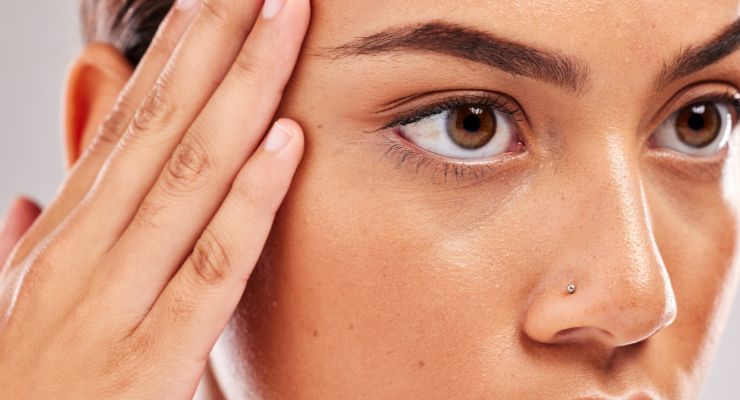07.26.23
Squalene, a liquid found within human sebum, is highly sensitive to oxidization, as it is the most unsaturated class of lipids. In human skin, squalene appears to protect other lipids on the surface from oxidative stress which comes from UV exposure and other sources.
In a new study, published by a team of scientists from the U.S. and Denmark, authors found that when people were exposed to varying amounts of ozone in a climate-controlled, sealed chamber, higher concentrations of hydroxyl radicals were produced by the subjects, depending on how much ozone they were exposed to.
The authors noted that based on the reaction of ozone with human skin, and squalene in particular, higher amounts of squalene within the skin can create a field of oxidation which protects the skin’s surface. This is due to the creation of 6-methyl-5-hepten-2-one (6-MHO), which forms when squalene generates Hydroxyl radicals through reaction with ozone.
Study Details
The novel discovery was first published in Science, and involved three different groups of four individuals who each stayed in respective climate-controlled environments for four days, with varying levels of ozone that aren’t considered to be harmful to humans.
Hydroxyl radical concentrations were measured both in the presence and absence of ozone, both prior and throughout the volunteers’ stays.
Even without human presence, ozone reacted with the squalene found in settled dust, skin flakes, and clothing that had been oil-soiled by skin.
“This is a remarkable discovery, but since it's the first of its kind, more needs to be looked at to support additional exploration into the potential effects on human health. Squalene may have beneficial extra characteristics since it not only supports healthy skin and hair but also has the potential to oxidise indoor chemical pollutants. It's not just for cosmetic purposes, it also influences the environment and human health in a good way”, said Dr. Ariati Aris, scientific affairs specialist at PhytoGaia, suppliers of STGaia, a dietary supplement ingredient which contains a complex of plant squalene and tocotrienols.
“My eyes were literally lit up when I read the study. Squalene and the oxidation of most polluting gases have a far stronger correlation than I ever expected. I am encouraged and eager to see additional squalene research regarding this possibility that applying squalene topically could potentially assist us in enhancing air quality,” said Bryan See, vice president of PhytoGaia.
In a new study, published by a team of scientists from the U.S. and Denmark, authors found that when people were exposed to varying amounts of ozone in a climate-controlled, sealed chamber, higher concentrations of hydroxyl radicals were produced by the subjects, depending on how much ozone they were exposed to.
The authors noted that based on the reaction of ozone with human skin, and squalene in particular, higher amounts of squalene within the skin can create a field of oxidation which protects the skin’s surface. This is due to the creation of 6-methyl-5-hepten-2-one (6-MHO), which forms when squalene generates Hydroxyl radicals through reaction with ozone.
Study Details
The novel discovery was first published in Science, and involved three different groups of four individuals who each stayed in respective climate-controlled environments for four days, with varying levels of ozone that aren’t considered to be harmful to humans.
Hydroxyl radical concentrations were measured both in the presence and absence of ozone, both prior and throughout the volunteers’ stays.
Even without human presence, ozone reacted with the squalene found in settled dust, skin flakes, and clothing that had been oil-soiled by skin.
“This is a remarkable discovery, but since it's the first of its kind, more needs to be looked at to support additional exploration into the potential effects on human health. Squalene may have beneficial extra characteristics since it not only supports healthy skin and hair but also has the potential to oxidise indoor chemical pollutants. It's not just for cosmetic purposes, it also influences the environment and human health in a good way”, said Dr. Ariati Aris, scientific affairs specialist at PhytoGaia, suppliers of STGaia, a dietary supplement ingredient which contains a complex of plant squalene and tocotrienols.
“My eyes were literally lit up when I read the study. Squalene and the oxidation of most polluting gases have a far stronger correlation than I ever expected. I am encouraged and eager to see additional squalene research regarding this possibility that applying squalene topically could potentially assist us in enhancing air quality,” said Bryan See, vice president of PhytoGaia.




























